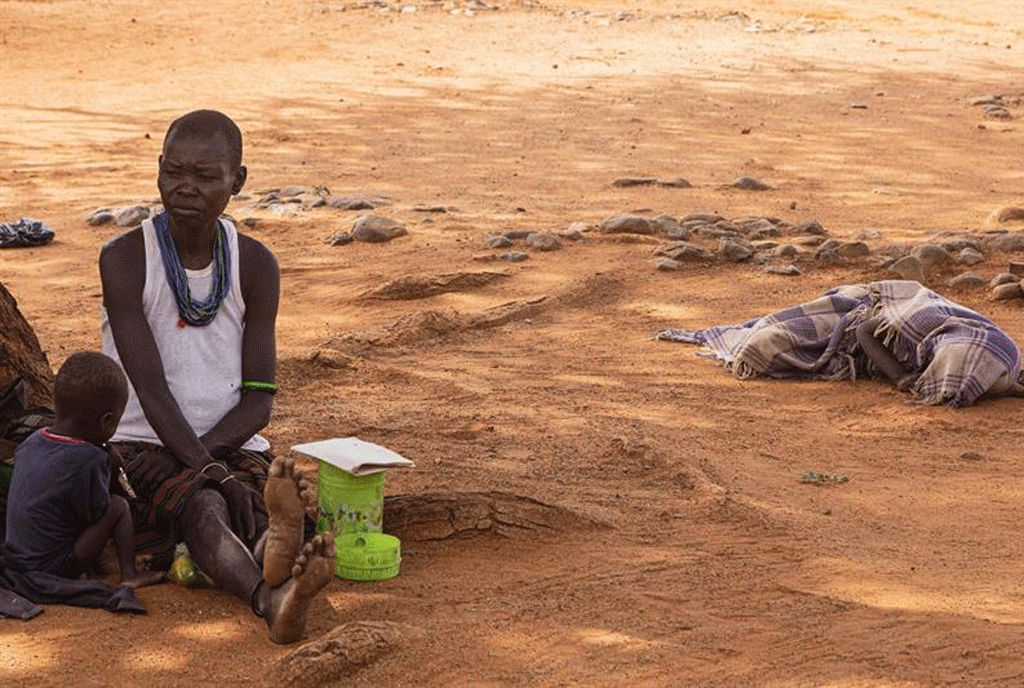Agriculture ministry to grow food in Karamoja

A mother and her children during a nutrition screening at Nadunget Health Centre in Nadunget, Karamoja Sub-region, Uganda, on May 24. In Karamoja and some parts of Lango sub-regions, there are reports of people dying of hunger as a result of food shortage. PHOTO/AFP
What you need to know:
- On October 16, the country will join the rest of the world to commemorate World Food Day under the theme; ‘Safe food today for a healthy tomorrow’.
The government has created a project aimed at sustaining food production on a large scale in Karamoja Sub-region, the State Minister for Agriculture, Mr Fred Bwino Kyakulaga, has said.
Speaking at the World Food Day dialogue at the Office of the Prime Minister in Kampala yesterday, Mr Bwino said the ministry will organise women groups on the green belt in Karamoja at sub-county level to support them in food production.
He said the green belt, which covers Kaabongo, Abim and Napak districts, is suitable for growing cereals, legumes, oil seed, and producing animal protein.
“We shall support them also to mobilise the surrounding communities to produce similar crops. We are doing this to create a sustainable food system in Karamoja so that we can end the situation (hunger),” Mr Bwino said .
The sub-region is facing a hunger crisis with Kaabong, Kotido, Moroto, and Nabilatuk districts the most affected. The government with its partners have on several occasions distributed food to the areas.
On October 16, the country will join the rest of the world to commemorate World Food Day under the theme; ‘Safe food today for a healthy tomorrow’.
Mr Bwino said they were working with the United Nations Development Programme and the South Africa High Commission in Uganda to support the food project.
He added that they will roll out the same exercise in the next season to private large-scale commercial farmers.
The minister said efforts to construct water reservoirs for irrigation are still in the pipeline.
According to Mr Bwino, some government agencies such as Prisons , UPDF, and National Agricultural Research Organisation were directed to produce 100,000 acres of food.
Mr Bwino said the next step is to put up food reserves in the country.
The Third Deputy Prime Minister, Ms Rukia Nakadama, said there has been an increase in food secure households from 69 percent in 2019 to 78 percent in 2021, which is above the NDPIII target of 75 percent, adding that the Parish Development Model will also increase food production.





